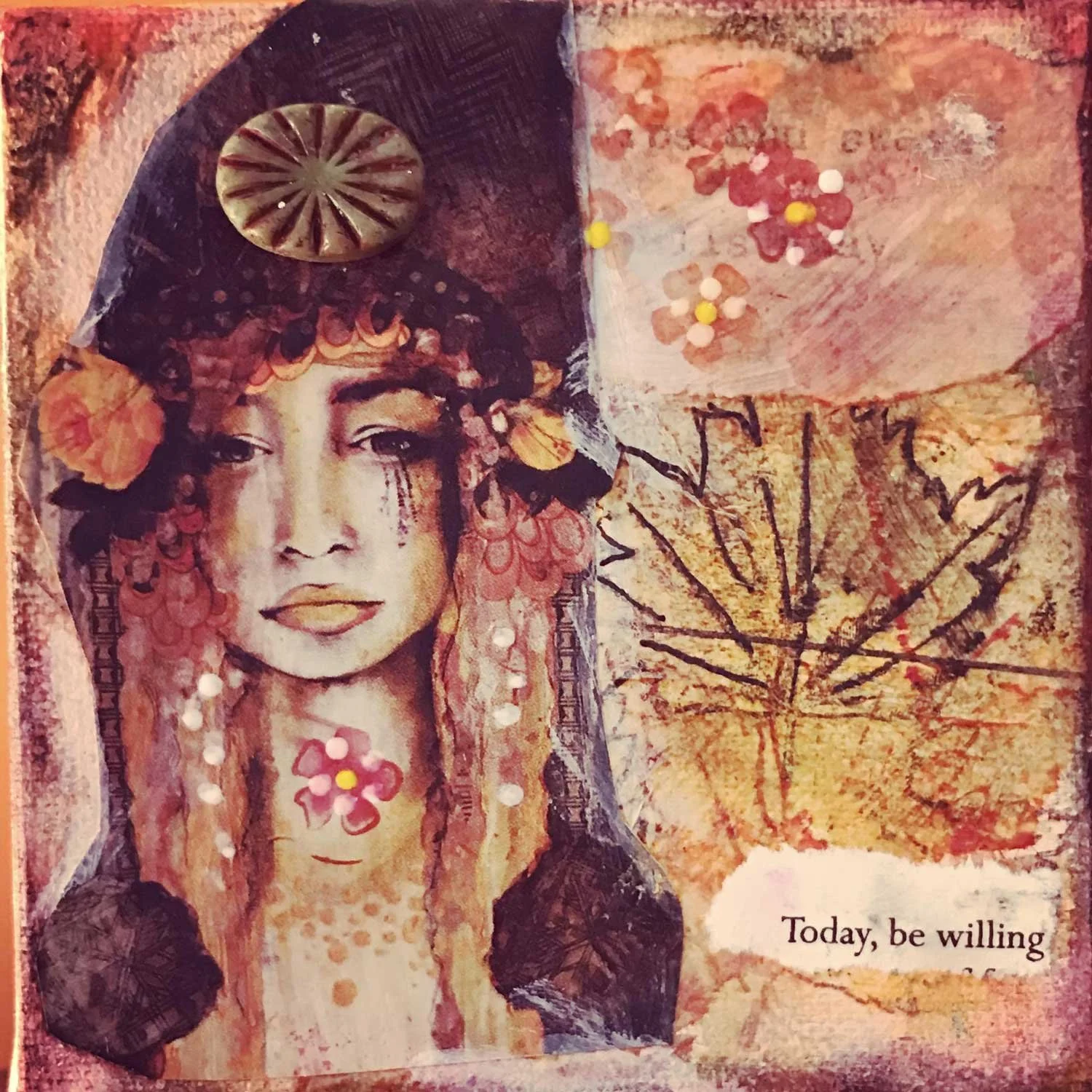The Lost Art of Intuition
Mixed-Media by E Elliott
“I was never lost in the woods or mountains in my life; and although I was now traveling in a direction which I had never traveled but one time before, and at that time being of the darkness of night, yet I never for a moment lost my reckoning in the direction which I had marked out, and went forward with an unerring certainty as if I had been guided by a compass.”
This excerpt from my great-great-grandfathers Civil War memoir harkens back to a time sans our modern-day assault of distractions, when one learned by instinct to detect and interpret clues from nature. In this case, Ellis learned to navigate his way through the rugged mountains of East Tennessee. In most ways we are grateful for the advances of our times, but I think we’ve lost much of our ability to tune in to the necessary, readily available, and useful human tool of intuition.
But what does that have to do with writing?
In a world overflowing with information, it can feel almost impossible to hear the quiet murmur of our own inner voice. From the moment we wake, we are bombarded: endless news updates, social media scrolls, texts, and the constant hum of opinions vying for our attention. All of it fills the space where intuition—the whispering language of the subconscious—once thrived.
Yet, as writers, intuition is one of our greatest tools. It’s what allows us to leap into a story we don’t fully understand yet, to follow a surprising character down an unplanned path, or to trust an image or phrase that arrives out of nowhere. Without it, we risk writing only what we already know, instead of what wants to reveal itself.
Fall: The Season of Listening
October, with its crisp air and longer nights, brings a natural invitation to slow down and listen. Folklore tells us that in autumn, as the veil thins between the seen and unseen, intuition becomes easier to access. Shadows stretch differently, the wind carries voices, and we sense the tug of what lies just beyond.
This is the perfect time of year to tune in. The season itself seems to whisper: pay attention, the unseen is speaking.
Why We Lose Touch with Intuition
Intuition is quiet, subtle, and often inconvenient. It rarely announces itself in bold type. Instead, it flickers in images, hunches, gut feelings, or sudden questions that surface in stillness. When we drown our senses in constant input, we crowd out those fleeting signals. It’s like trying to hear an owl’s call on a windy night—you know it’s there, but the noise drowns it out.
Our culture rewards speed, productivity, and certainty. Intuition asks for slowness, stillness, and trust. It feels risky to follow because it rarely comes with a guarantee, but instead with a nudge: “this way, try this, pay attention.”
Reclaiming the Lost Art
The good news is intuition can be reawakened. Like any art, it thrives with practice:
Silence the noise. Even a few minutes of quiet each day—no phone, no media, just breath—can make space for inner knowing to rise.
Notice the body. Intuition often lives in the gut, the chest, the skin prickling on your arms. Writing down where and how you feel things can help you recognize its signals.
Follow the odd image. When a strange metaphor or unexpected detail shows up in your writing, resist the urge to explain it away. Let it lead you.
Trust the detours. If you sit down to write one thing but another insists on being written, follow that tug. Intuition often works sideways.
One of my favorite ways to access this hidden reservoir is through freewriting. When we put pen to paper without censoring, judging, or editing, we bypass the noisy critic in our head. Freewriting allows the subconscious to slip through, offering images, insights, and connections that often surprise us. It is a way of honoring the intuition that we so often ignore. In the flow of words that tumble out, we begin to recognize patterns, truths, and directions that were there all along, waiting to be heard.
Tuning in to our intuition is not about achieving perfection or following rules. It is about reclaiming an ancient art: the art of listening inwardly. As the veil thins, perhaps it is time to sit with the page, quiet the outside world, and let your own inner compass
Intuition as a Writer’s Compass
The deepest writing often doesn’t come from logic or planning alone—it comes from the subterranean river of memory, dream, and imagination. Intuition is the compass that guides us into that underground place. When we let it lead, we discover connections we couldn’t have forced, truths we didn’t know we were carrying, and stories that surprise even us.
This October, let the season itself be your reminder. As the veil thins and the shadows lengthen, practice listening for what arises in the quiet. Intuition is not a luxury—it is the thread that ties us to the mystery of creativity itself. To follow it is to reclaim a lost art, both in writing and in life.
(And if you are interested in learning about intuitively understanding your surroundings check out the books by writer Tristan Gooley, like The Nature Instinct or The Natural Navigator.)
New! Want to give Bewilderness Writing a try?
Check out our guided free write video inspired by the above E. E. Cummings poem!


Ellis Elliott is a published author and poet. Join her Bewilderness Writing Workshops and use free writing to find yourself and your voice on the page. Order her poetry collection Break in the Field.